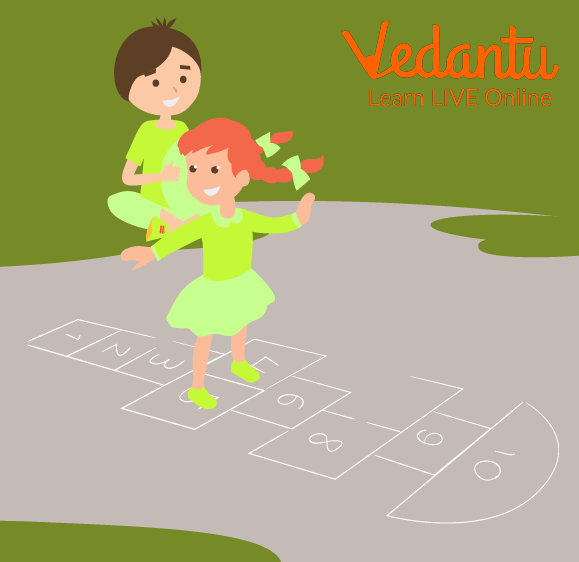




Why Play-Based Learning Matters in Preschool
Preschool games include playing with toys, but they also do things like learn to share and build with blocks. These early years are important for laying the foundation for their future in academics, or any other field of work. For preschool activities, facilities are provided for their playing and learning and these facilities have to be very safe. Tiny little hands playing soft games captivate the soul and are amazingly fulfilling to watch. Regardless of any rules, kids play to entertain themselves and enjoy themselves. ABC games for 3-year-olds are the most widely used game played and liked by kindergarten buds.
Commonly Played Games
Duck Duck Goose
The game of duck duck goose is played where it is quite popular amongst primary schools. learning games like this, children must have a ball which they pass from hand to hand, but only after each player has called out "duck" or "goose". The time to call out a new animal is then determined by how quickly that animal moves across their own body. One person at a time is given the ball for one minute and after one person has called out all the animals, players rotate around again.

Kids playing Duck Duck Goose
Musical Chairs
Musical chairs are as easy as ABC games for 3-year-olds in preschools and daycare centres. It is a common game for children to play which consists of alternating between playing and sitting.
Simon Says
Simon Says is one of the preschool games where Simon gives a command and you have to follow it without asking any questions. Preschool kids enjoy this game because it is easier to follow Simon's commands than adults'. Boys love it even more than other games for preschoolers online.
Hopscotch
Since the time game for preschoolers online was not there, Hopscotch is a game involving jumping from one marked spot to another, using a series of natural or artificial objects as markers. Hopscotch is traditionally played with children ages 3–10 years old but can be played by adults as well.

Kids Playing Hopscotch
Safety Measures Include
Preschool kids play with alphabet games for preschoolers, and toys, but they also do things like learn to share and build with blocks. These early years are important for laying the foundation for their future in academics, or any other field of work.
Safety measures in a preschool environment include:
1) Every activity, no matter how tedious, is always supervised by an adult.
2) No sharp edges
3) No loose articles in the room that can be used as a weapon
4) No sharp corners
5) No heavy furniture to trip over
6) If a block falls, two hands are required to pick it up.
7) There is constantly a teacher or an adult present to answer the question if there is any need for attention.
It is really important that the preschool kids' paediatrician as well as the school nurse at home and the house doctor at school for preschool kids. These medical examinations are important for offering advice about safety on playgrounds, checking for other diseases like meningitis, early flu or any severe health issues that might be serious.
Types of Learning Games
Inactive Games
A kind of Preschool learning game that begins on the vacant stage. Mostly between birth and three months. Most likely, this kind of play doesn't even resemble play
Unoccupied Play
On the other hand, this is what babies do when they watch what's going on around them or wander. It prepares the ground for further play investigation.
Playing Alone or Independently
Just as the name implies, solitary play involves your child playing by themselves. One step on the road to independence is teaching kids how to amuse themselves through this kind of play. Your baby is starting to transition into the independent play stage if it can engage with toys, such as by grabbing a rattle.
Interactional Play
Children start playing together in earnest during cooperative play, which brings all the stages together. This is the predominant style of play in groups of children as well as in younger toddlers who have older siblings or have been exposed to many children, usually beginning between the ages of four and five.
Summary
Play is a crucial component of a child's development. While encouraging and supporting chances for ABC games for 3-year-olds, parents and other caregivers should keep in mind that children need their own time and space to master these skills, which they will do on their own. The lessons children pick up through play don't require parents to actively teach them alphabet games for preschoolers. The best part is that kids learn ideas and abilities while having fun playing their games.
FAQs on Best Preschool Games for Early Learning and Fun
1. What are some fun and simple games for preschoolers?
Some of the most popular and simple games for preschoolers focus on participation and fun. Examples include:
- Simon Says: Great for listening skills and following directions.
- Duck, Duck, Goose: A classic circle game that involves gentle running and anticipation.
- Building Blocks: Encourages creativity, planning, and fine motor skills.
- Hide and Seek: Teaches object permanence and problem-solving.
These games require minimal setup and are perfect for developing basic social and cognitive abilities.
2. What do children learn by playing games in preschool?
Playing games is a fundamental part of early childhood learning. Through games, preschoolers develop a wide range of essential skills. They learn to solve problems (like how to build a tower that won't fall), take turns with others, and communicate their ideas. Games also help them understand and manage emotions, such as the joy of winning and the disappointment of losing, which builds resilience.
3. How can games help in the physical development of a preschooler?
Games are crucial for physical development, particularly for building gross motor skills which involve the large muscles of the body. Activities like running in a game of Tag, jumping over a rope, or throwing and catching a ball help improve a child's balance, coordination, and overall strength. These active games are essential for healthy physical growth.
4. What is the difference between games for fine motor skills and those for gross motor skills?
The main difference lies in which muscles are used.
- Gross motor skills involve large muscle groups in the arms, legs, and torso. Games that develop these skills include running, jumping, and climbing.
- Fine motor skills involve the small muscles in the hands, fingers, and wrists. Activities like playing with dough, stringing beads, drawing, or fitting puzzle pieces together are excellent for developing this precise control.
A good learning environment provides activities for both types of skills.
5. With so many online games available, why are physical games still important for early learning?
While online games can be engaging, physical games offer unique developmental benefits that screens cannot replicate. Physical play provides a rich sensory experience—children can touch, feel, and interact with the world around them. It also promotes real-time social interaction, helping kids learn to read facial expressions and body language. Most importantly, it encourages physical activity, which is vital for health and helps burn off energy in a productive way.
6. What are some easy indoor games for preschoolers on a rainy day?
When you're stuck indoors, there are many simple games to keep preschoolers engaged. You can try a treasure hunt with simple clues, build a fort with blankets and pillows, have a dance party to different types of music, or play simple charades where they act out animals. These activities encourage imagination and problem-solving without needing much space or equipment.
7. How do group games help preschoolers develop social skills?
Group games are like a practice ground for social interaction. They naturally teach children essential social rules and behaviours in a fun, low-pressure setting. Through these games, kids learn about:
- Cooperation: Working together towards a common goal.
- Turn-taking: Understanding the importance of patience and waiting for their chance.
- Sharing: Learning to share toys or space with others.
- Communication: Expressing their needs and listening to their friends.
These experiences are foundational for building healthy friendships and navigating social situations.





















